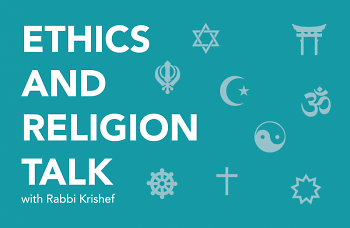Rev. Ray Lanning, a retired minister of the Reformed Presbyterian Church of North America, responds:
Human beings have been genetically modifying animals and plants of many kinds for thousands of years. Genesis 30 records the diligent efforts of Father Jacob to build his herds at Laban’s expense by selective breeding. Whether it involves the primitive methods used by Jacob or the latest laboratory techniques, genomes are being modified to encourage some desirable trait in an animal, plant or insect.
Presbyterianism opposes cruelty to animals, and the waste and abuse of any other creature of God. We agree with King Solomon that, “A righteous man regardeth the life of his beast” (Proverbs 12:10). The blessing of Sabbath rest is extended to one’s livestock in the Fourth Commandment (Exodus 20:10). But if these animals and their organs may be used for the good of my neighbor, the relief of human suffering or the restoration of health, there can be no lawful objection.
This use of animals is part of the “dominion over the creatures” granted to us by our Creator (Psalm 8:4-8; Larger Catechism, Q. 17), which involves both freedom to use them for lawful purposes and the responsibility to provide care and prevent abuse. Far better to breed animals for the purpose than to resort to the black market trade of harvesting and selling human organs that now exists.
The Reverend Colleen Squires, minister at All Souls Community Church of West Michigan, a Unitarian Universalist Congregation, responds:
I must state a personal bias to this question, prior to ministry I worked in a medical research facility in Boston. Many of the laboratories in this particular building conducted medical research on animals. I have witnessed countless medical advancements due to these experiments. To work in this type of building for over a decade, I had to come to terms with this fact. We currently use pig heart valves in humans to extend or improve the quality of life for those human patients. So I would personally support this medical advancement.
My personal opinion would not be in agreement with many Unitarian Universalists. There is a growing trend towards many UUs living a plant-based diet/lifestyle. Some are vegan, some members will not wear leather products and some have questioned the ethicacy of having family pets.
Fred Stella, the Pracharak (Outreach Minister) for the West Michigan Hindu Temple, responds:
I am quite sure that many in the Hindu community would oppose such measures, given that there is such respect for animal life. However, there is precedent to consider. The smallpox vaccine has animal content in it, including bovine. As I suspect most know, the cow is highly venerated in Hindu culture. There were Hindus in India who attempted to thwart the efforts of physicians (including Hindu doctors) to vaccinate the population. Thankfully, wiser heads prevailed, and now India, along with the rest of the world, is smallpox free.
All this leads me to say that if science is able to save human lives by this procedure, not only would I approve of it, but if it could save me or a loved one from suffering or death, I would not hesitate to move forward with such a treatment.
Linda Knieriemen, a retired pastor of the Presbyterian Church (USA), responds:
The first question this raises is the purpose of animals vis-a-vis humans. In the book of Genesis we read that God gives humans all the fish and animals and birds for food. Later God gives leather clothing to Adam and Eve. One might conclude that animals only exist to meet human needs. If this is so, why didn’t God create the human first and then create all that the human needed?
One could also lean into God’s directive to Adam and Eve to have “dominion over” creation. A better translation may be “responsibility for”. If I believe I have dominion, I would be more likely to embrace modifying animals genetics to aid in transplantation than if I believe I have responsibility, which asks me to think beyond a purely anthropocentric view. Maybe it’s my responsibility to protect pigs from their fate as tools for human medicine—tools which require their death.
Then there is the matter of risk. Might a genetically modified animal carry bacteria or viruses with unknown impact on humans or other animals? What risks are present for the recipient of a genetically modified pig heart? Caution is imperative as laboratory and clinical trials progress.
My response:
Judaism considers protecting and saving human life to be an obligation of the highest order, with very few exceptions. As long as the animals are treated humanely during their lifetimes, it is ethically acceptable to address the severe shortage of human organs for transplant by raising genetically modified animals.
This column answers questions of Ethics and Religion by submitting them to a multi-faith panel of spiritual leaders in the Grand Rapids area. We’d love to hear about the ordinary ethical questions that come up in the course of your day as well as any questions of religion that you’ve wondered about. Tell us how you resolved an ethical dilemma and see how members of the Ethics and Religion Talk panel would have handled the same situation. Please send your questions to [email protected].
The Rapidian, a program of the 501(c)3 nonprofit Community Media Center, relies on the community’s support to help cover the cost of training reporters and publishing content.
We need your help.
If each of our readers and content creators who values this community platform help support its creation and maintenance, The Rapidian can continue to educate and facilitate a conversation around issues for years to come.
Please support The Rapidian and make a contribution today.
